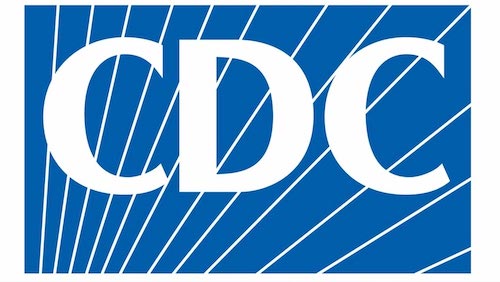Bioinformatics Fellow, CDC
Category : Alumni
Biologist (Bioinformatician)
Deputy Director of Infectious Diseases, National Center for HIV/AIDS, Viral Hepatitis, STD, and TB Prevention, Division of HIV Prevention, Laboratory Branch, Molecular Epidemiology and Bioinformatics Team
Level of responsibility
Research assignment
The fellow will assist in the development and deployment of comprehensive, expandable, and secure software systems that integrate multiple bioinformatics and analytical tools to improve integration, analysis, and interpretation of phylogenetic, epidemiologic, and clinical treatment data for the detection of HIV transmission clusters. The fellow will apply these new methods to new and existing datasets from various studies in the branch, DHAP, and across CDC. The HIV-specific datasets include EpiAID and outbreak investigations, cases of public health importance (COPHIs), cluster investigations, and the National Molecular HIV Surveillance system in collaboration with HICSB. This project will automate analysis of the national HIV surveillance data to facilitate early recognition of transmission networks, improve targeting of prevention strategies, and modeling and prediction of local and national epidemics. The new tools will also be applied to studies of transmission networks of other existing or emerging pathogens or epidemiologic investigations of any disease. Specific duties and responsibilities include:
- Use metadata available from various studies and surveillance databases across NCHHSTP and CDC to assist with evaluation and validation of the platforms.
- Help develop dashboards and automated reports for easy visualization of national HIV surveillance data
- Perform data analyses to help identify meaningful transmission cluster characteristics and trends in subgroups to provide actionable public health intelligence to federal, state and local partners
- Evaluate and recommend available bioinformatics tools to integrate into the platform as needed
- Train coworkers, collaborators, and state and federal partners to use these new tools
- Prepare findings for presentations at conferences, workshops, meetings, and in publications
- Work with CDC IT staff to securely integrate any new tools and platforms into existing IT infrastructure.
- Investigate cloud-based instances of the systems for improved jurisdictional access
Supervisory control:
The fellow will discuss and plan the priorities and research project in conjunction with the Activity and/or Team leads. It is expected that the scientist will perform all the analyses and software development required for this work and will coordinate bioinformatics tool development with their immediate supervisor and other scientists, epidemiologists and software programmers and other team members. Completed work will be reviewed from an overall standpoint in terms of feasibility, and effectiveness in meeting requirements.
The fellow will not have supervisory responsibilities.
Guidelines and originality:
The proposed assignments and responsibilities are essential for the mission of the HIV Laboratory Branch, DHAP, NCHHSTP, CDC, and HHS. Our Branch is pioneering development of novel bioinformatic tools and platforms to combine and analyze laboratory and epidemiologic data to detect concerning HIV clusters. This work is a key pillar of the President’s initiative to end the HIV Epidemic by 2030. This high impact work will lead to early recognition of transmission networks, improve targeting of prevention strategies, and modeling and prediction of local and national epidemics, especially if automated and applied in near real time. Furthermore, the new tools can be applied to studies of transmission networks of other pathogens or epidemiologic investigations of any disease. The long-term scalability of the project will provide increased data sharing capabilities that will improve situational awareness at the federal, state and local levels. Given the complex nature of these projects, multiple laboratory and bioinformatics skills are needed, including virology, molecular biology, microbiology, data science, programming, training others to use bioinformatics, and preparation of protocols, presentations, and manuscripts.
We are building novel bioinformatic methods and systems for HIV cluster detection and characterization, hence guidelines for their construction are limited or non-existent. The fellow will use their technical expertise to evaluate, analyze, and recommend available guidelines and resources, including those identified by literature and internet searches, for adaptation to develop the bioinformatics methods and systems to combine various data sources to detect, visualize and report HIV clusters. When development and implementation guidelines are not available, the fellow will consult with supervisor and utilize his/her bioinformatics experience to build new methods and systems that can be integrated with existing tools and platforms. Development of new methods and systems will require agile, original, critical, and creative solutions identified by the fellow in consultation with the activity and team leads.
Contribution, impact, and stature
The fellow will assist with the development and deployment of bioinformatics tools to automate integration and analysis of laboratory and epidemiologic data for HIV cluster detection and response, which is a key pillar of the President’s initiative to end the HIV Epidemic by 2030. The fellow will also use the new tools to analyze several datasets from various studies, outbreaks, and national surveillance to identify transmission clusters requiring targeted interventions. This work is essential to advance CDC’s mission to prevent disease and develop sound public health policies.
Preferred skills
- Bioinformatics, molecular epidemiology experience (phylogenetics, phylodynamics, networks), microbiology, genomics
- Network theory experience
- Relevant experience in bioinformatics analysis or scientific computing
- Experience with programming languages such as R, bash, Perl, Python, JavaScript, D3.js, MatLab, React, Angular, R Shiny, and Linux Operating Systems (e.g. Ubuntu, RedHat, CentOS), and Linux command line
- Experience with high performance computing
- Experience with the development of bioinformatic pipelines
- Strong written and verbal communication skills
- Knowledge of bioinformatics applications and analysis, particularly as it pertains to analysis of pathogen genomics data, including next generation sequencing (NGS) platforms
Education requirements
Bachelor of Science or Master’s Degree in Bioinformatics, Computational Biology, Biology, or Microbiology
To Apply:
Job posting not available yet. Contact Bill Switzer for details at bis3 [at] cdc [dot] gov. Fellows will be working on the Ending the HIV Epidemic Initiative, which you can learn about here and development of the MicrobeTrace tool which you can learn about here.
